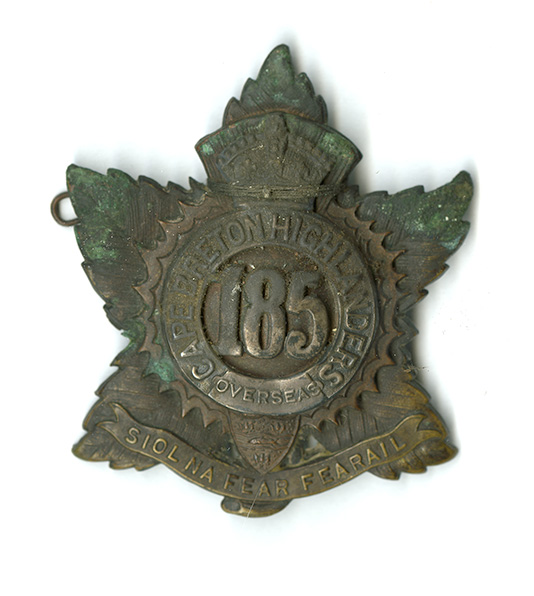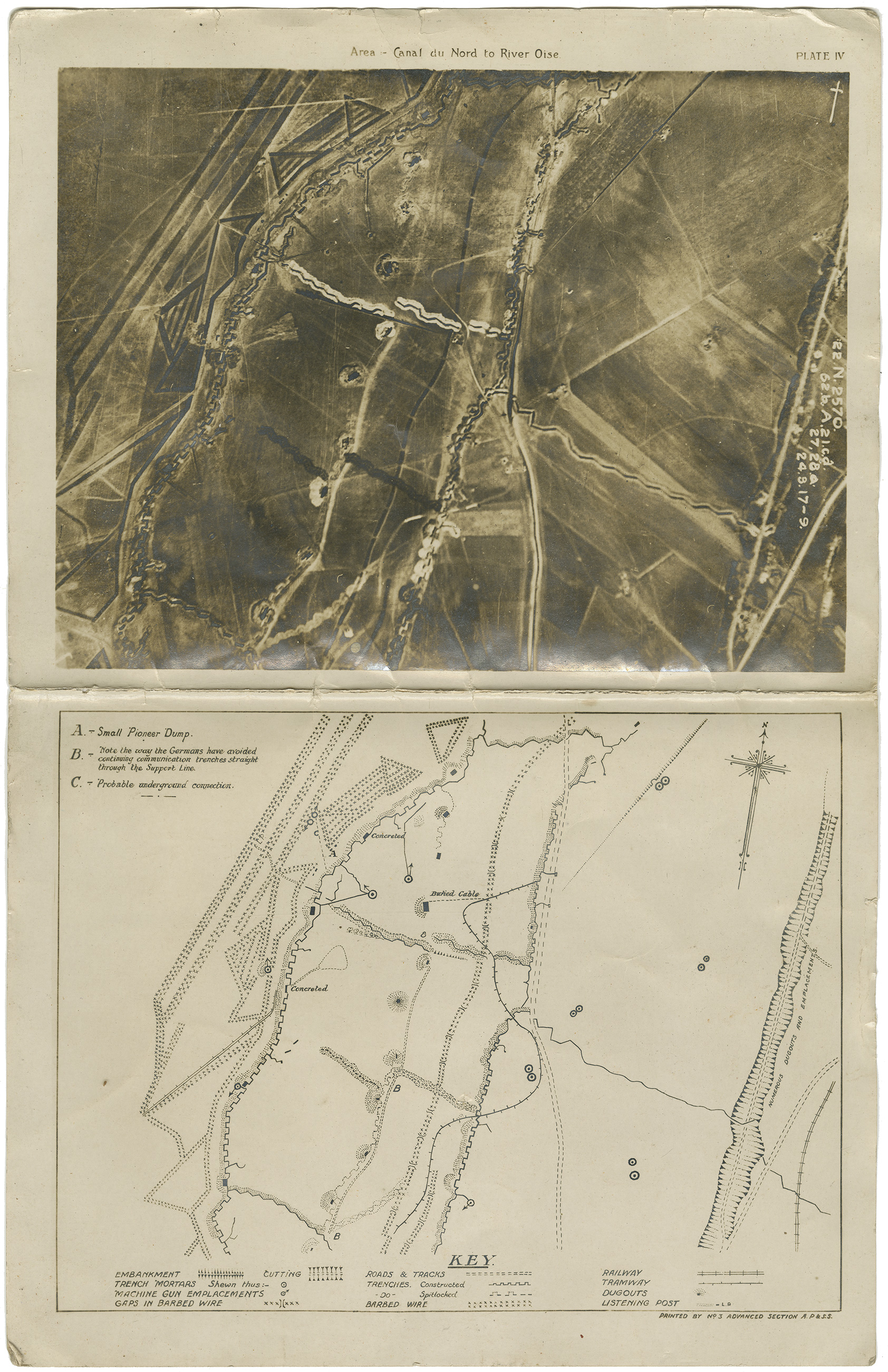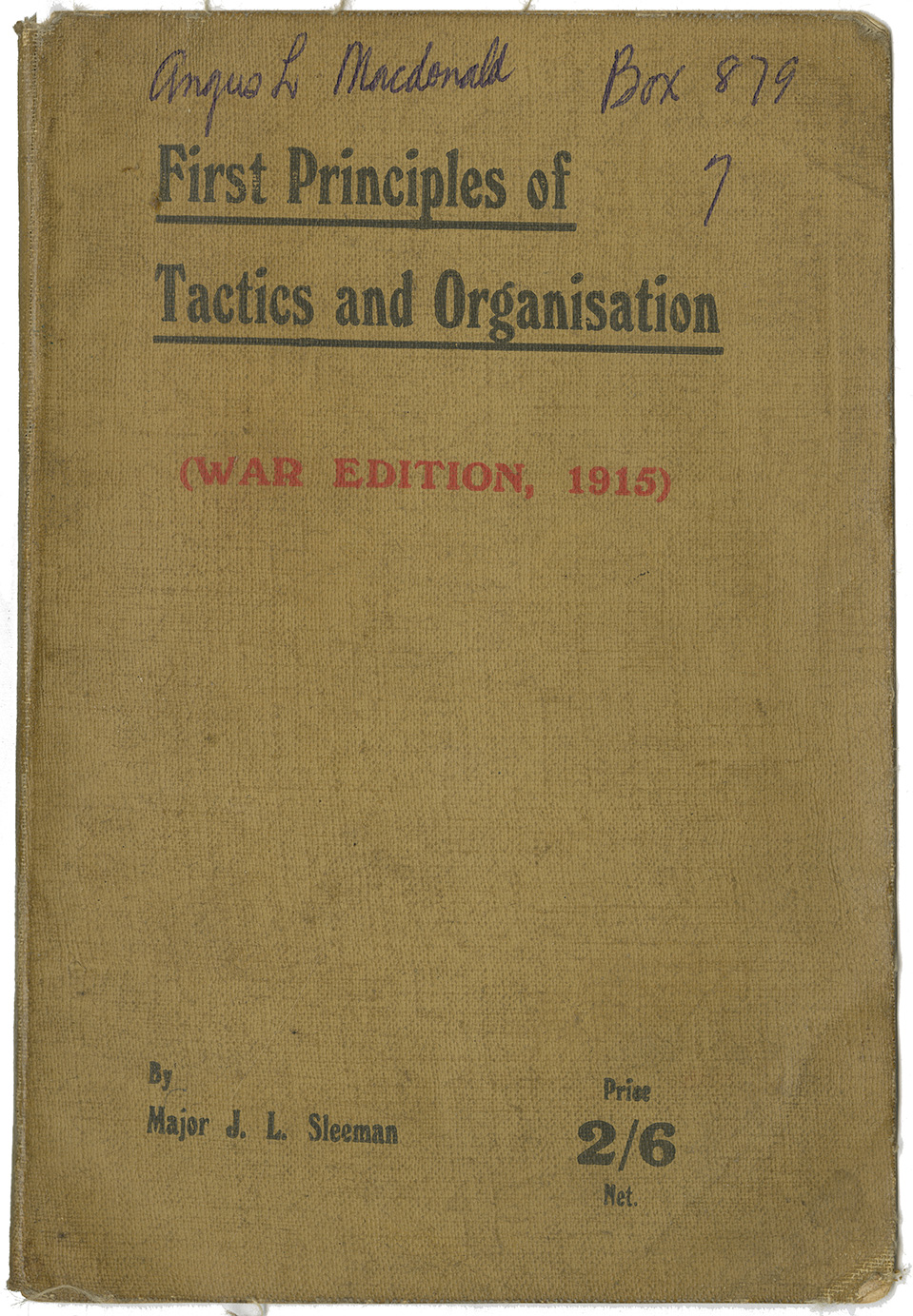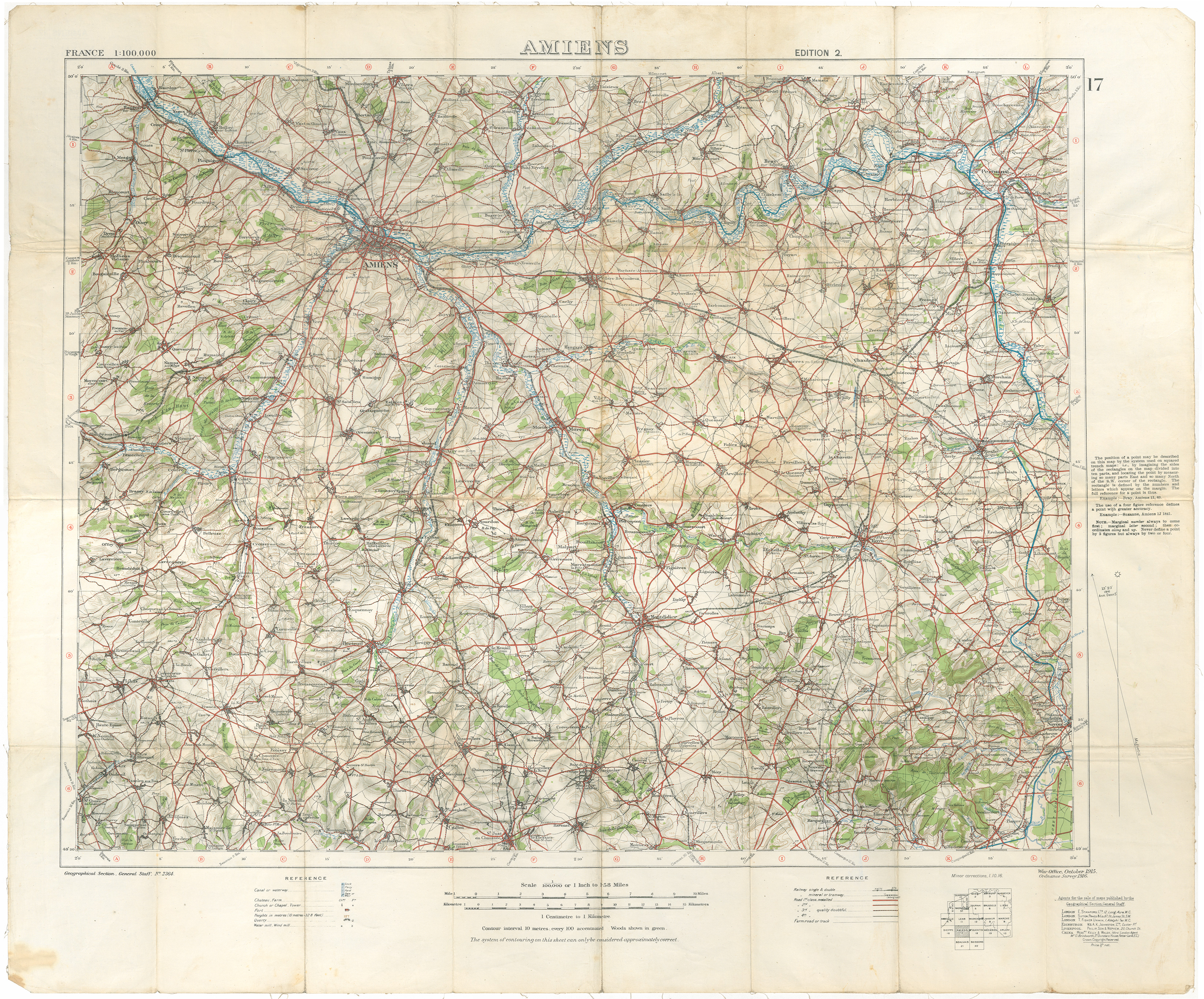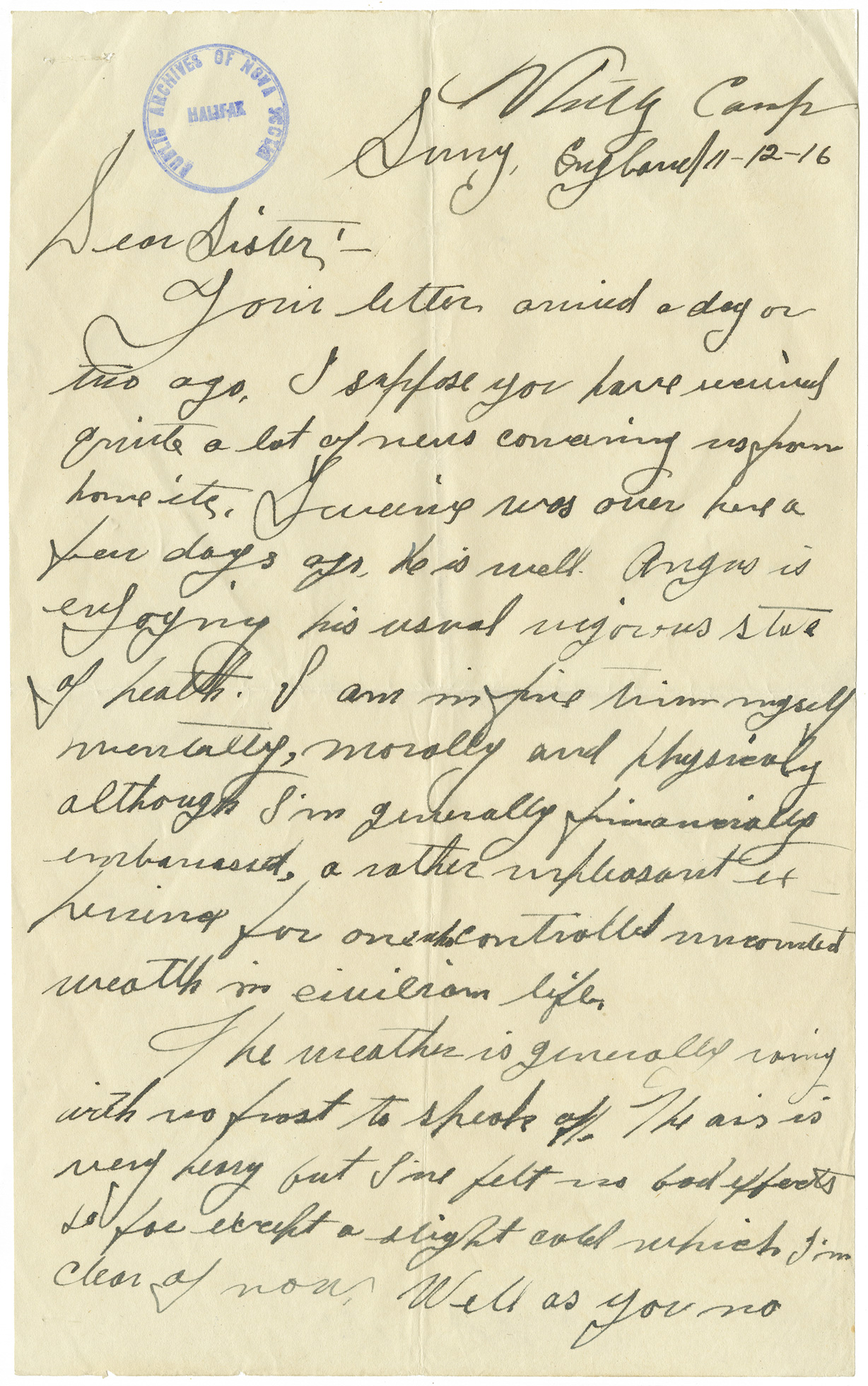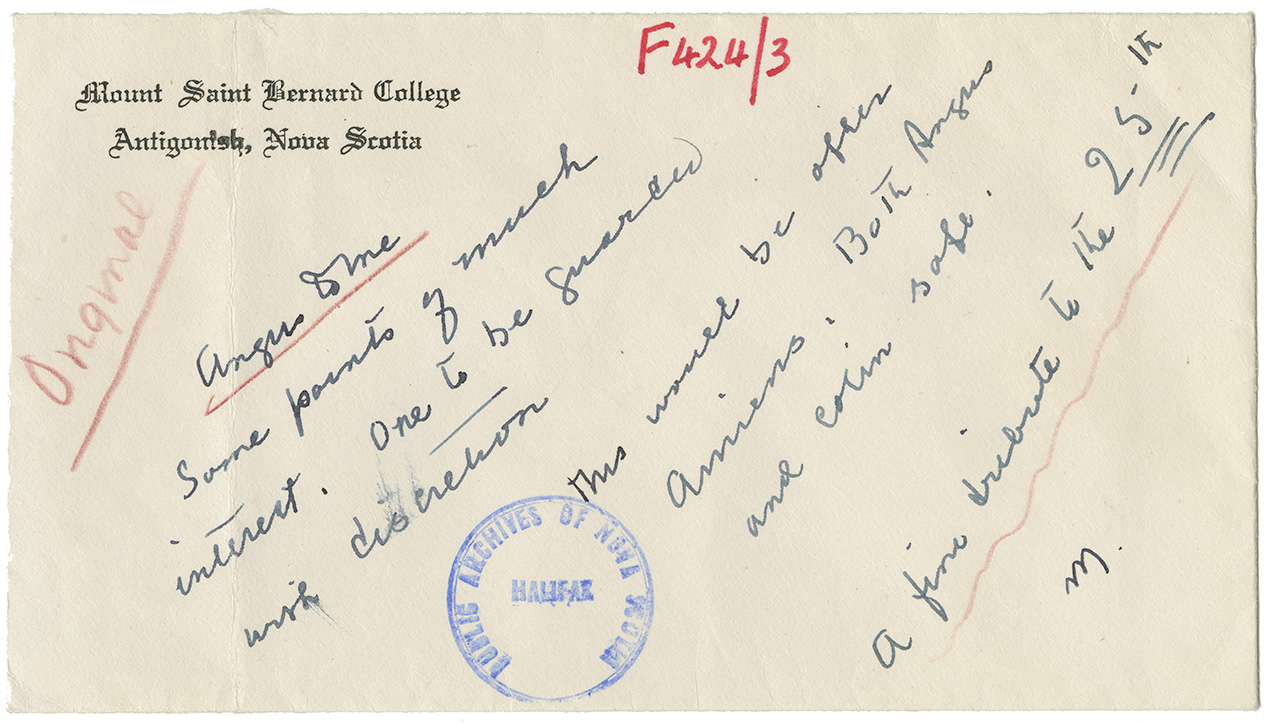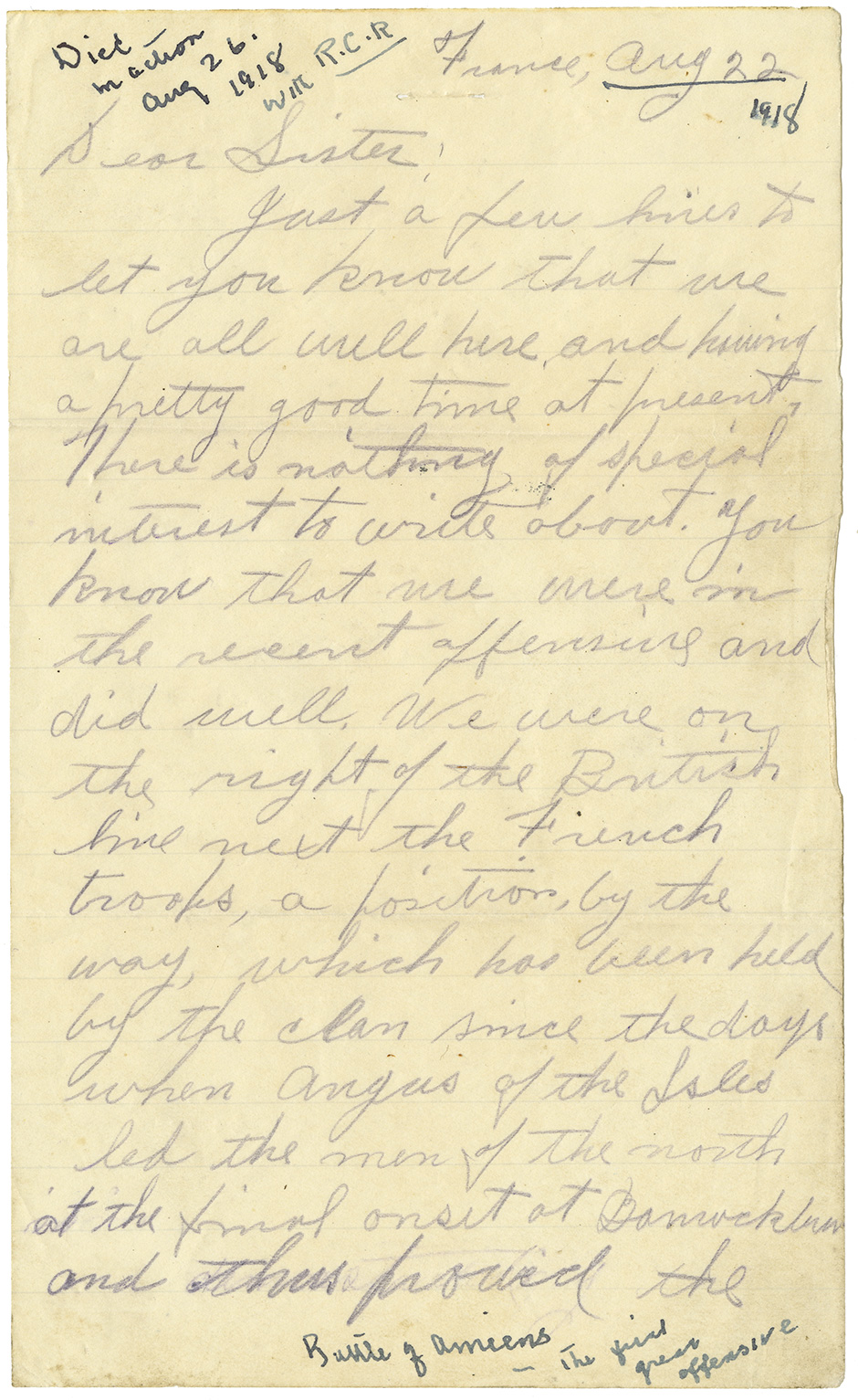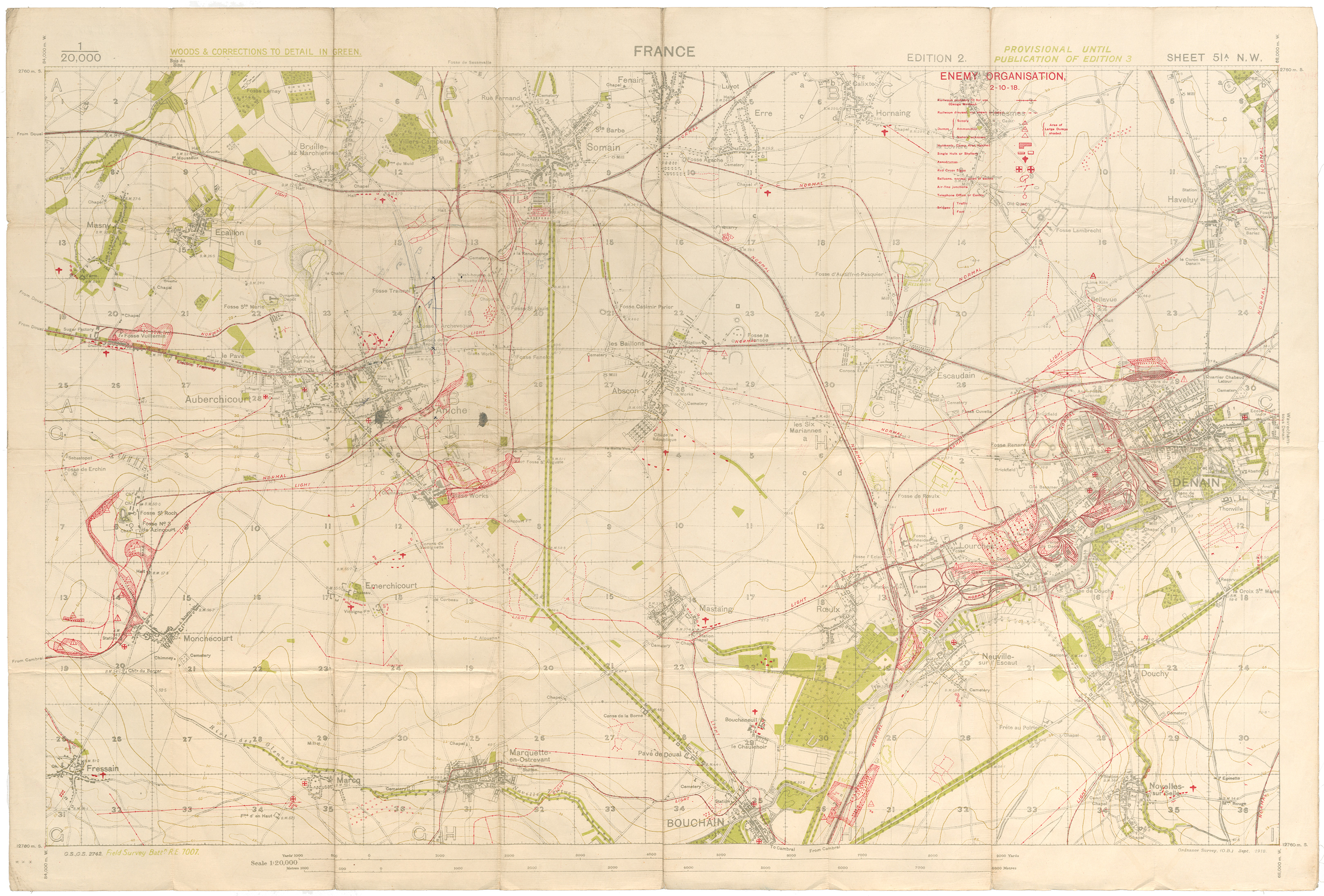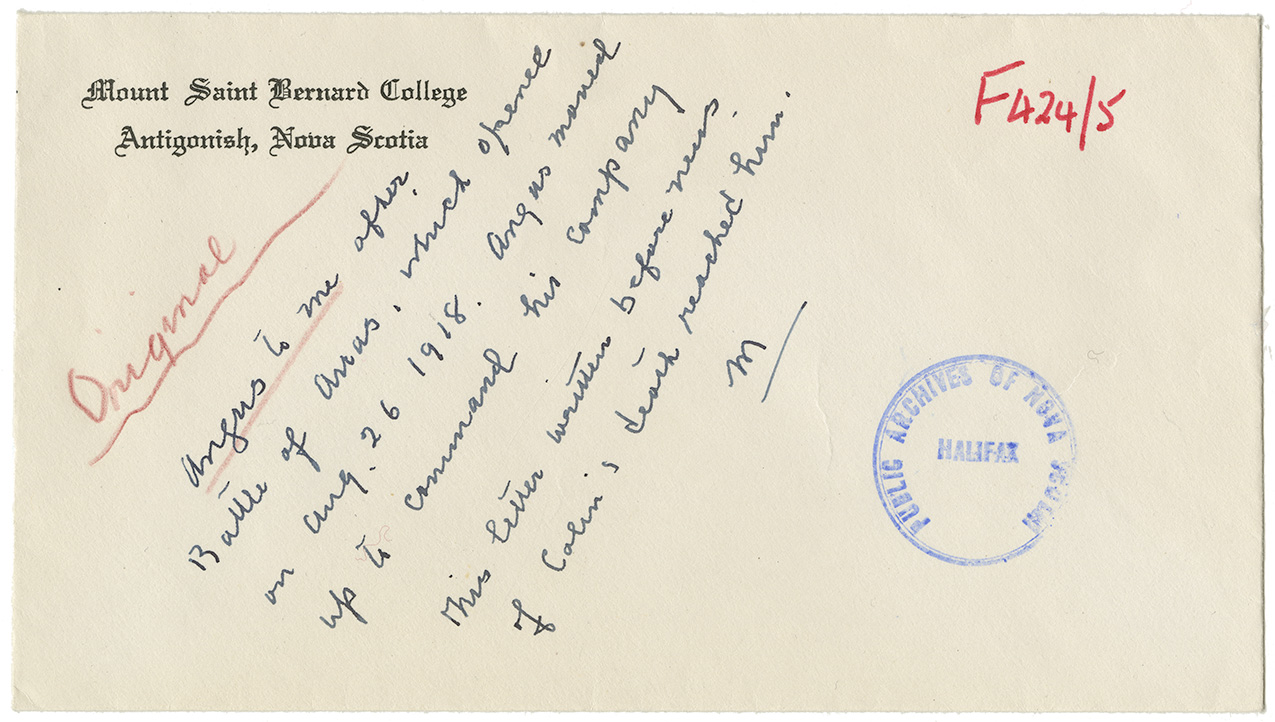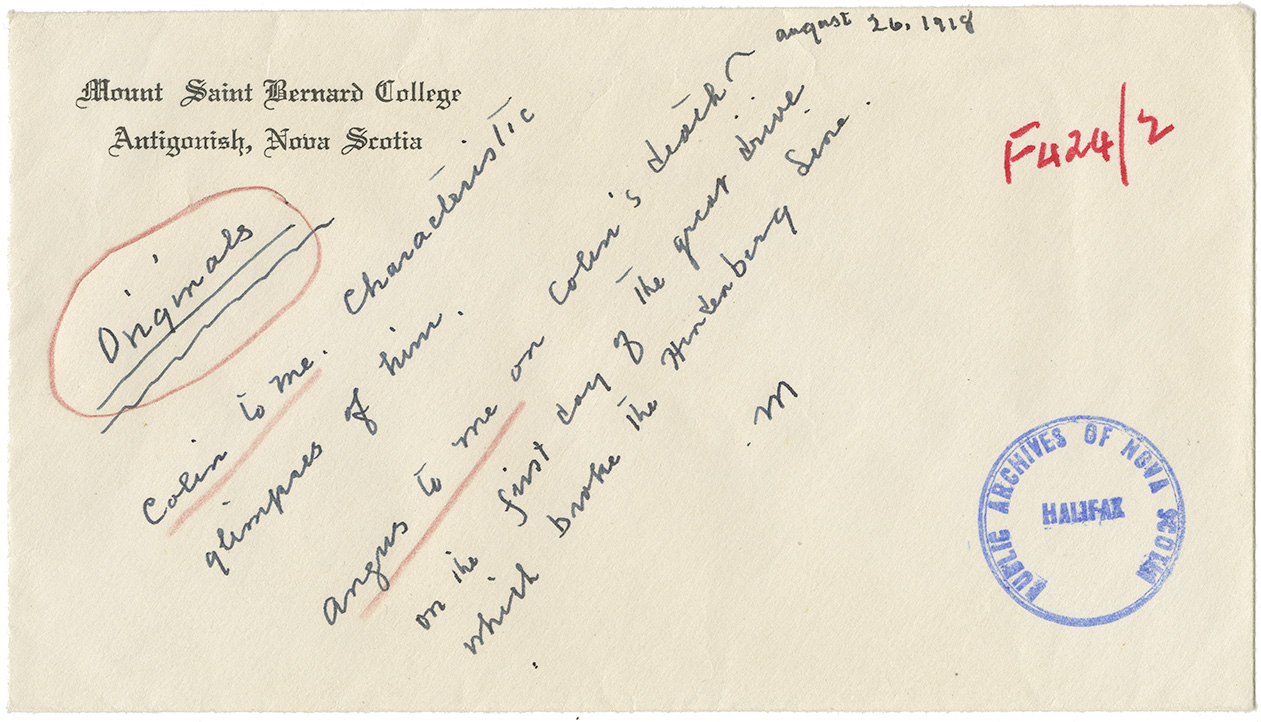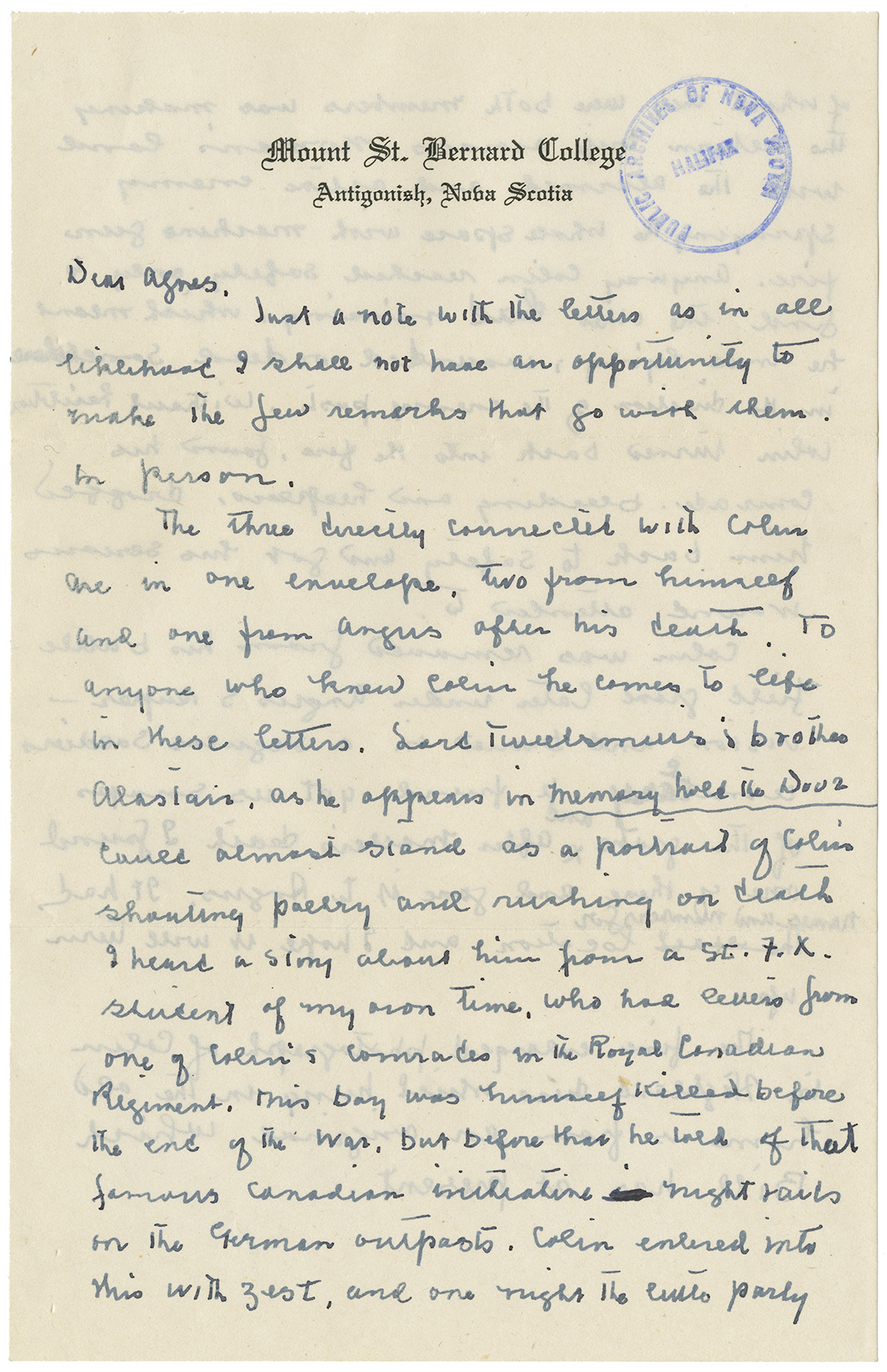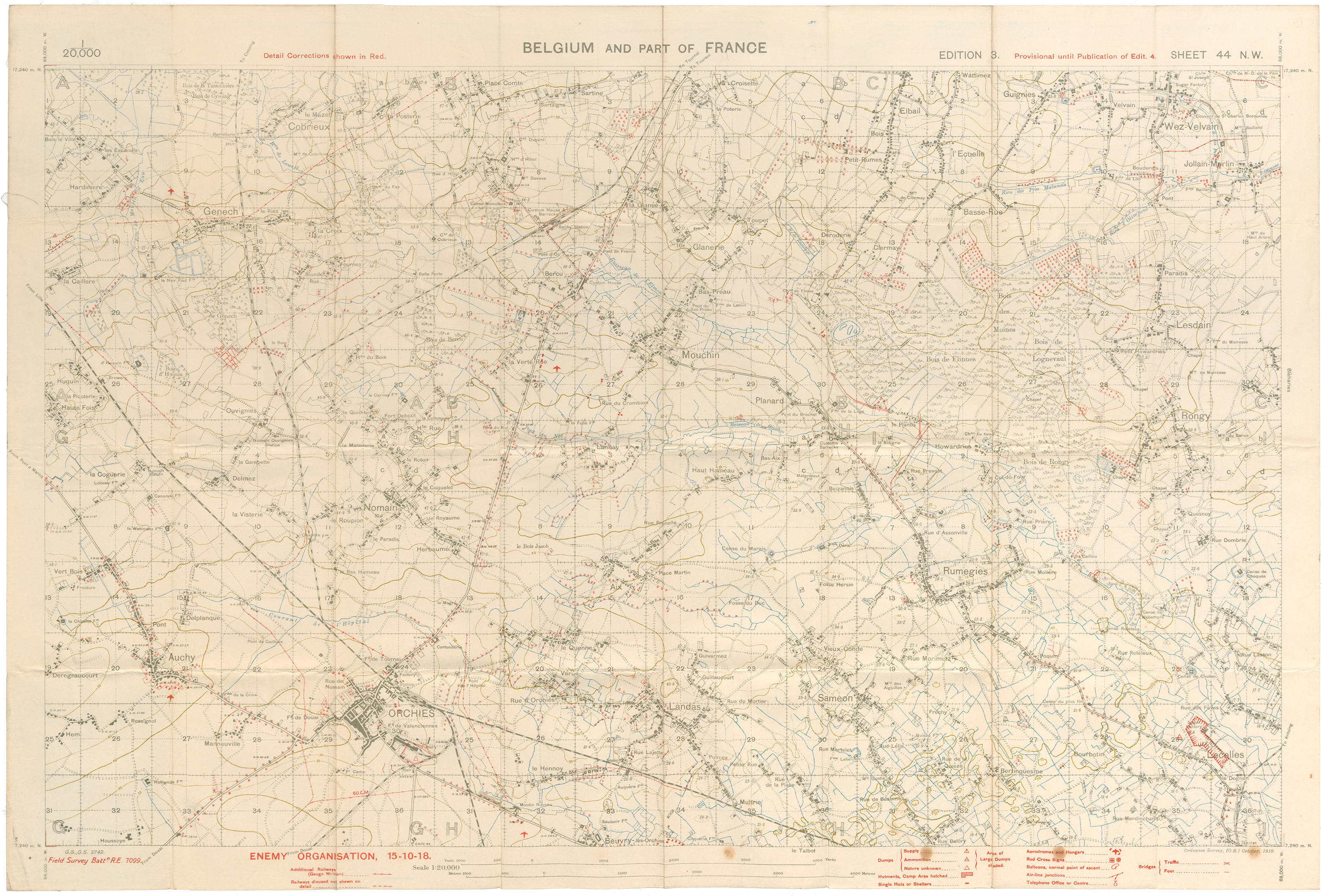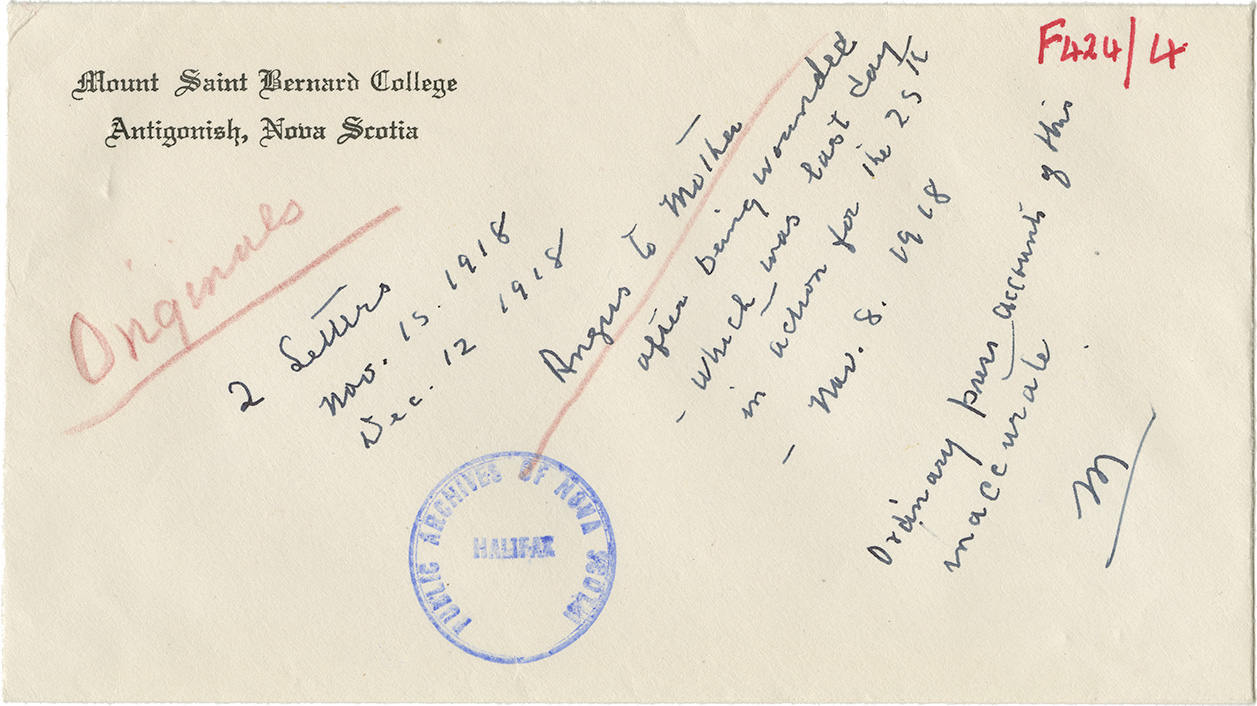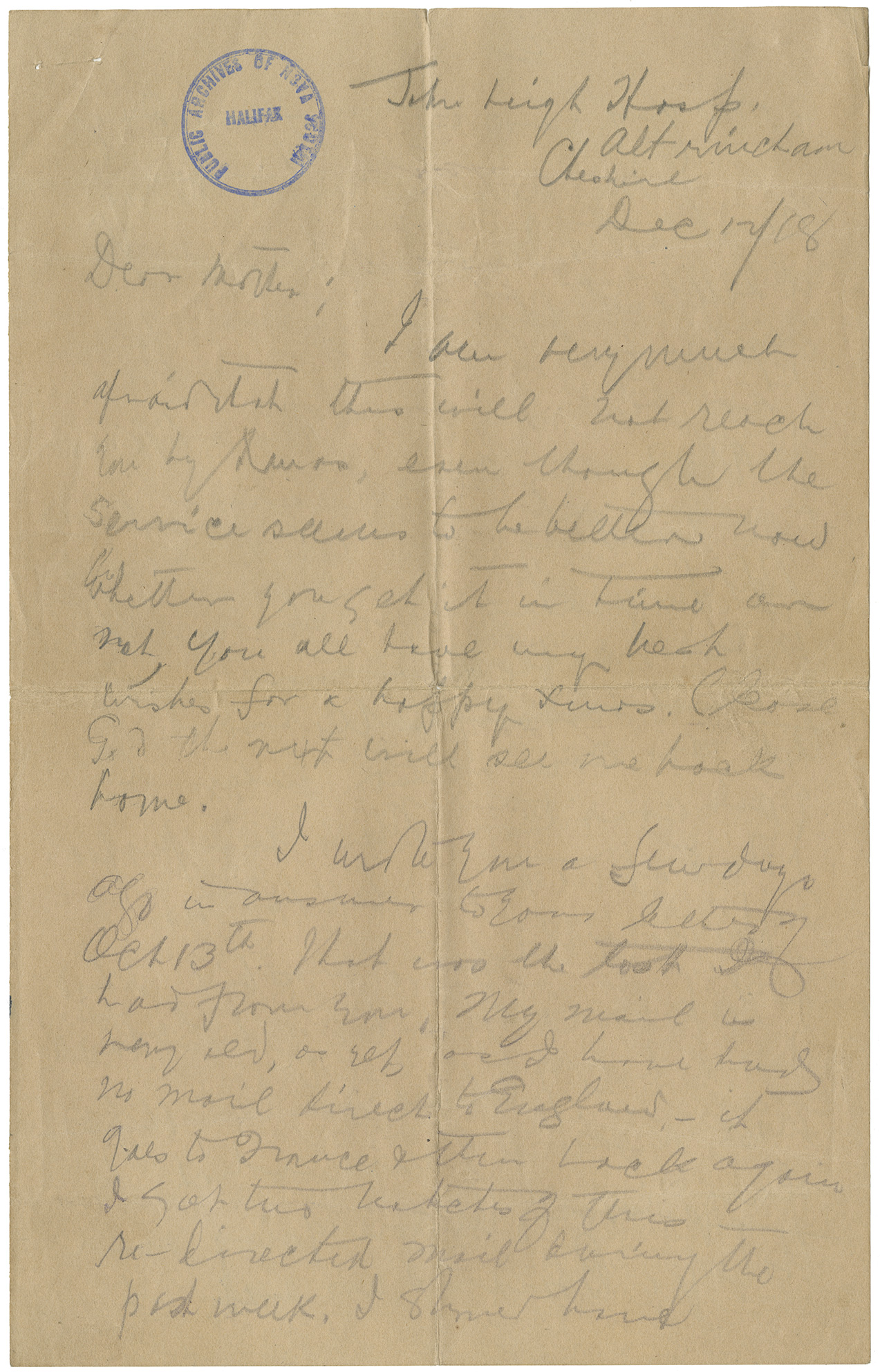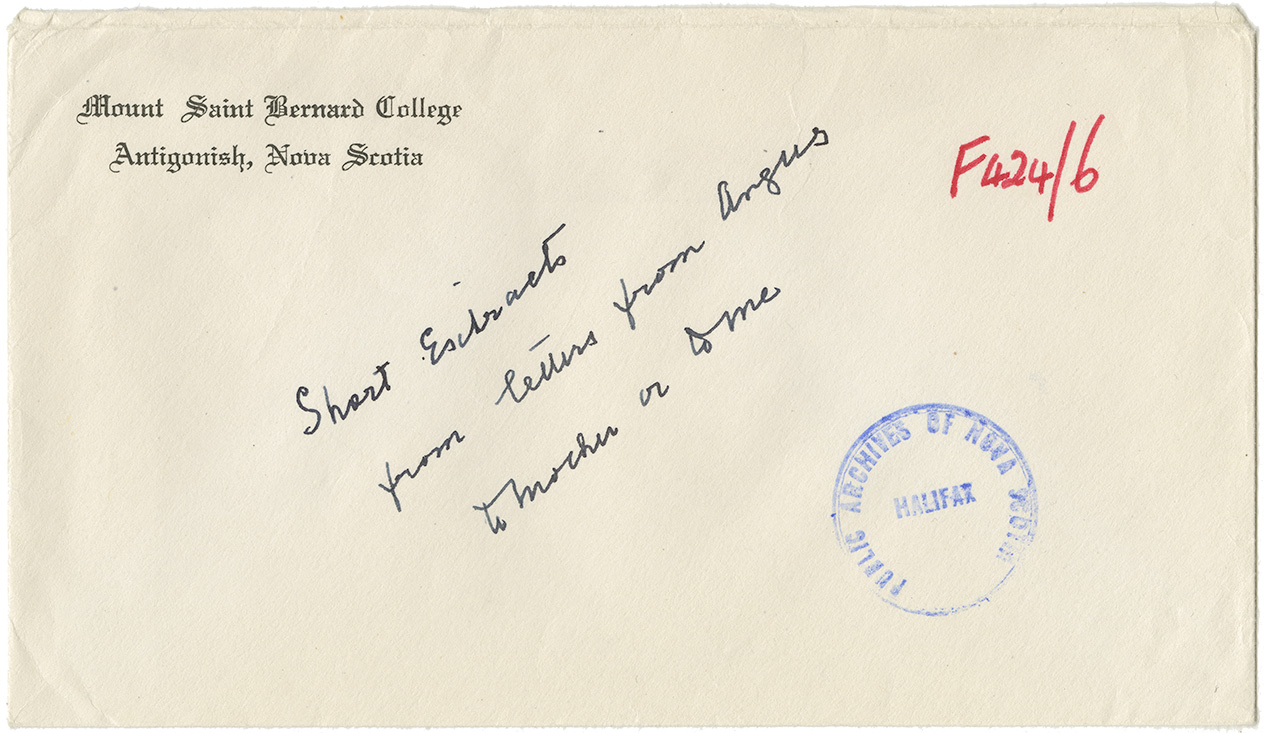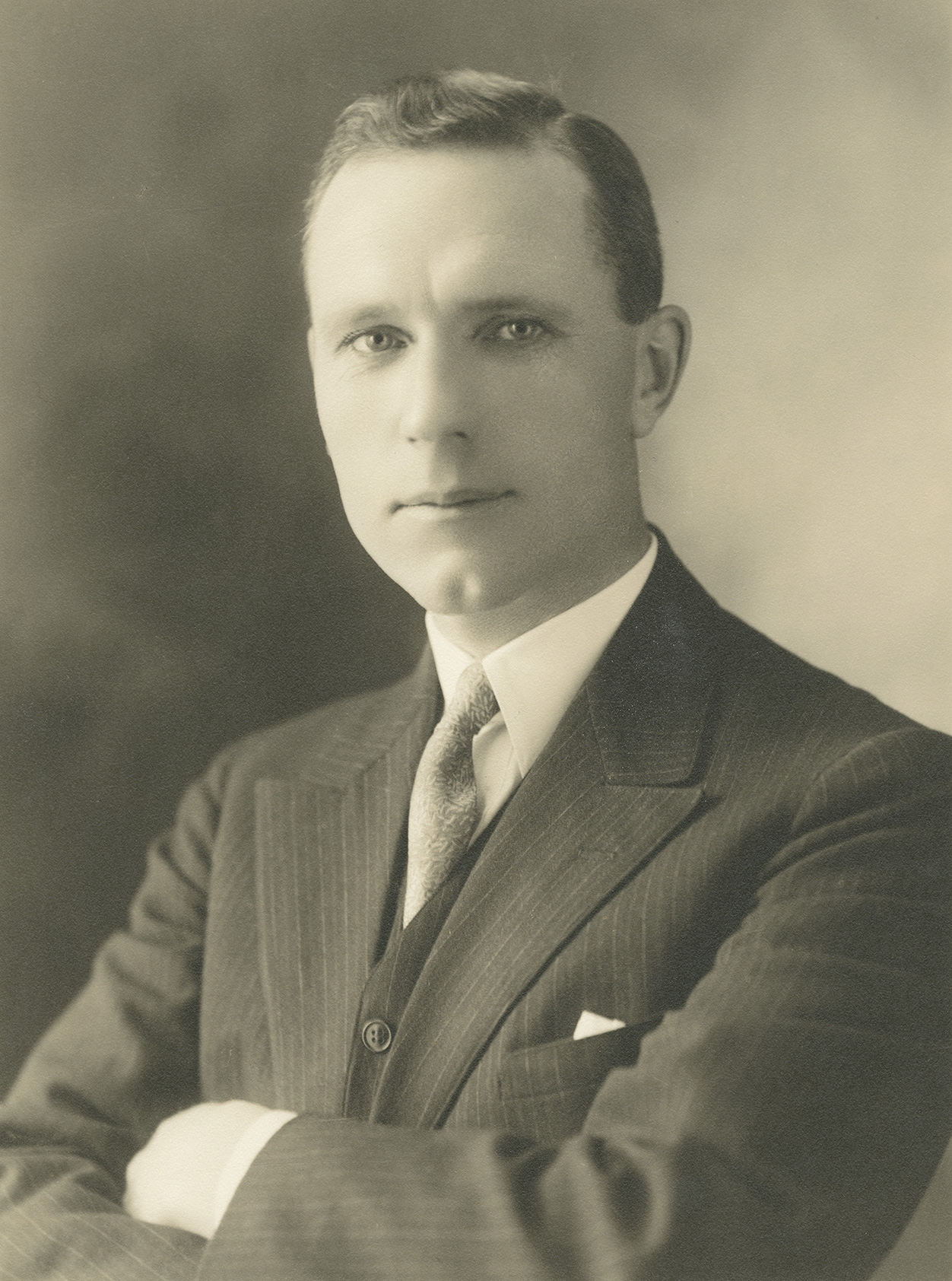Nova Scotia Archives
Letters Home
Lieutenant Angus L. Macdonald
“The names of these men who have gone, will be remembered and reverenced so long as Canada remains a free country.”
Angus Lewis Macdonald (1890-1954), ninth in a family of fourteen children, was born on the family farm in Dunvegan, Inverness County. ‘Angus L.’ was serious and studious; he attended Port Hood Academy, worked in the Sydney steel mills, and taught school. He entered Saint Francis Xavier University, Antigonish, in 1909 and graduated BA in 1914. During the 1914-15 school year, he taught Math and English in the university’s high school, in order to repay his university debts.
Macdonald enlisted in the Cape Breton Highlanders in 1915, was appointed lieutenant (185th Battalion, Canadian Overseas Expeditionary Force) in February 1916, and was promoted to captain later that year. The 185th was stationed at Camp Aldershot, NS until October 1916, when it embarked for overseas, sailing on the RMS Olympic. The soldiers remained in England initially, for further training and military exercises. Macdonald was paid $5.65 per day as a captain; he had to purchase his own military clothing and, on occasion, the bullets for his service revolver.
Macdonald wanted to see front-line action, so he reverted to the rank of lieutenant – no longer a company captain, but instead a platoon officer in charge of about 50 men. He was assigned to the 25th Battalion, 2nd Canadian Division, and arrived in France on 26 February 1918. John Hawkins, writing in The Life and Times of Angus L. (1969) has described the horrific conditions experienced by Macdonald and his men:
The trenches were wet and cold and filled with lice. Men’s bodies became encrusted with these vermin, and for macabre amusement, officers often “ran a lighted match along the inside seam of their britches to hear the nits pop”. The routine that Macdonald knew was one of bloody struggle, silent tension and agonizing monotony. Six days were spent in the front line trenches, then six days in battalion reserve and six days in support. It was a never-ending cycle that littered the fields of France with the broken bodies of young Canadians. The bombardments and the waiting stretched the nerves until they broke, and men became victims of what was termed “shell shock”. The wounded often fell from the planking and drowned in the oozy sea of mud.
During the Battle of Arras in August 1918, Macdonald’s young brother Colin was killed “on the first day of the great drive which broke the Hindenburg line.” He was one of an estimated 158,600 Canadian, British and Australian casualties (and about the same number of German deaths) in this protracted battle. Angus L., writing home in early September, spoke of his “…solemn pride that one of my brothers has been tried in the furnace and that he has been proven true, and that he has laid down his life in a great and a just cause. The names of these men who have gone, will be remembered and reverenced so long as Canada remains a free country.”
The 25th Battalion abandoned trench warfare in August 1918 and began advancing upon the retreating German army. As they moved through Elouges, Belgium in the last days of the war, they frequently encountered snipers and machine-gun fire; just four days before the Armistice, Macdonald was moving forward on his own, in a running crouch, when he was shot by a sniper’s bullet which entered just below his neck and exited his back.
He remained trapped behind enemy lines until the next day, when his company advanced and found him lying on the floor of an old building. In critical condition, he was taken to a dressing station, transported to England on 12 November for further treatment, and remained in hospital at the Nova Scotia Regimental Depot until January 1919. After another six months’ convalescence, he returned home in June.
Once back in Nova Scotia, Macdonald’s career path took new directions. He studied law at Dalhousie (LLB 1921) and Harvard (SJD 1921), served as Assistant Deputy Attorney General for Nova Scotia (1921-24), was a lecturer at Dalhousie Law School (1922-24) and then a professor (1924-29). He became leader of the provincial Liberal Party in October 1930 and was elected MLA for Halifax South (1933-40; 1945-54), serving as premier through both periods. His first years in office saw Macdonald provide decisive leadership during the depths of the Great Depression.
During the Second World War he moved to federal politics as MP for Kingston ON, serving as Minister of National Defence for Naval Services, July 1940 to April 1945. Returning to Halifax after the war, Macdonald was re-elected premier and continued, in declining health, until the 1954 Session of the Nova Scotia Legislature, during which he passed away in his sleep on 13 April. To this day, the memory of Angus L. Macdonald resonates with Nova Scotians – a strong leader for challenging times.
Results 1 to 17 of 17 from your search: Macdonald
Photograph of the 185th Battalion
[1914-1918]
Nova Scotia Archives MG 2 volume 879
Lieutenant Angus L. Macdonald
Cap Badge of the 185th Cape Breton Highlanders Overseas
[1914-1918]
Nova Scotia Archives MG 2 volume 1506 folder 424
Lieutenant Angus L. Macdonald
Map with key and photo of Area - Canal du Nord to River Oise
[1914-1918]
Nova Scotia Archives MG 2 volume 879
Lieutenant Angus L. Macdonald
First Principles of Tactics and Organisation (War Edition, 1915)
1915
Nova Scotia Archives MG 2 volume 879
Lieutenant Angus L. Macdonald
Map of Amiens, France, Section 17
October 1915
Nova Scotia Archives MG 2 volume 1506 folder 424
Lieutenant Angus L. Macdonald
Letter from Colin Macdonald to sister Mary
11 December 1916
Nova Scotia Archives MG 2 volume 1506 folder 424/2
Lieutenant Angus L. Macdonald
Letter from Angus L. Macdonald to sister Mary
28 July 1918
Nova Scotia Archives MG 2 volume 1506 folder 424/3
Lieutenant Angus L. Macdonald
Letter from Colin Macdonald to sister Mary
22 August 1918
Nova Scotia Archives MG 2 volume 1506 folder 424/2
Lieutenant Angus L. Macdonald
Map of France Sheet 51 A N.W.
September 1918
Nova Scotia Archives MG 2 volume 1506 folder 424/1
Lieutenant Angus L. Macdonald
Letter from Angus Macdonald to his sister Mary
1 September 1918
Nova Scotia Archives MG 2 volume 1506 folder 424/5
Lieutenant Angus L. Macdonald
Letter from Angus L. Macdonald to Sister St. Veronica
5 September 1918
Nova Scotia Archives MG 2 volume 1506 folder 424/2
Lieutenant Angus L. Macdonald
Letter from Mary (Agnes L. Macdonald's sister ) to Agnes (wife of Angus L. Macdonald)
undated
Nova Scotia Archives MG 2 volume 1506 folder 424/3
Lieutenant Angus L. Macdonald
Map of Belguim and Part of France Sheet 44 N.W.
October 1918
Nova Scotia Archives MG 2 volume 1506 folder 424
Lieutenant Angus L. Macdonald
Letter from Angus L. Mcdonald to his mother
15 November 1918
Nova Scotia Archives MG 2 volume 1506 folder 424/4
Lieutenant Angus L. Macdonald
Letter from Angus L. Mcdonald to his mother
12 December 1918
Nova Scotia Archives MG 2 volume 1506 folder 424/4
Lieutenant Angus L. Macdonald
Short extracts from Angus Macdonald's letter that were wriiten to his sister and mother
undated
Nova Scotia Archives MG 2 volume 1506 folder 424/6
Lieutenant Angus L. Macdonald
Photograph of Angus L. Macdonald
1920s
Nova Scotia Archives MG 2 F371 Photo Vault
Lieutenant Angus L. Macdonald

